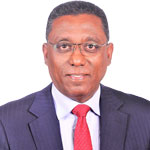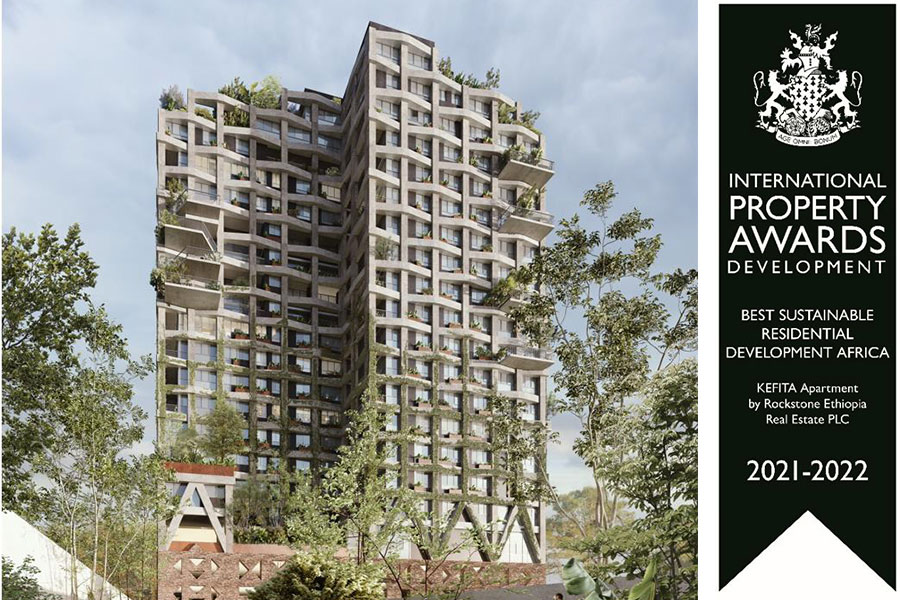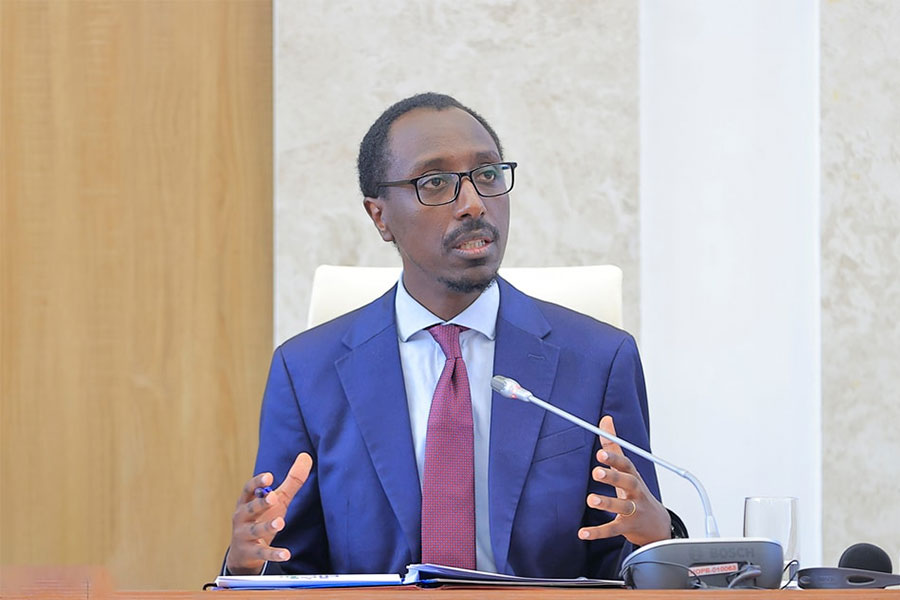
Commentaries | May 25,2024
Aug 14 , 2021
By Desta Mebratu (Prof.)
Africa should not wait around for an invitation to become a member of the G20. It is historically justified to claim a seat while the G20 are obliged to accept Africa's membership if SDGs and the Paris Climate Agreement are ever to be achieved, writes Desta Mebratu (PhD), professor at Stellenbosch University in South Africa and a fellow of the African Academy of Sciences.
The pre-summit session of the United Nations Food Systems, held in Rome, Italy, saw prominent economist and sustainable development advocate Professor Jeffrey Sach make a couple of recommendations to global leaders. One of these was for the G-20 to become the G-21 by inviting the African Union as a full member of the forum. He argued this would allow a representative of an additional 1.4 billion people to sit around the table where decisions of global proportions are made.
It has been years since the importance of Africa was recognised by the G7 and G20 groups and African leaders have been invited to some of these forums by host countries. However, no one yet dared to talk about the elephant in the room until Professor Sach, who also wrote the opinion piece, "The Case for a G21," recently.
While expressing my appreciation for Professor Sach, I take his proposition. But it needs to be taken a bit further and argued that Africa should claim a place at the G20 table rather than waiting for it as a goodwill gesture from others. Most European countries and the United States of America partly owe their current level of industrialisation and development to the natural and human resources originated from our region. We are historically justified to claim our seat while the G20 is morally obliged to accept Africa as a member.
More importantly, it is imperative for the G20 to invite Africa to the table as it holds the key for humanity’s survival and sustenance in an increasingly resource and carbon-constrained world. The International Panel on Climate Change (IPCC) concluded in 2018 that future climate-related risks on aggregate will be more considerable if global warming compared to pre-industrial level exceeds 1.5 degrees centigrade.
We have already started seeing these climate-related risks creating havoc across the world. The most recent Emission Gap Report produced by the United Nations Environment Programme (UNEP) indicated that the wealthiest one percent would need to reduce their current emissions by at least a factor of 30 to meet the goal. In contrast, per capita emissions of the poorest 50pc could increase by around three times their current levels on average.
Africa's population is estimated to reach 2.5 billion by 2050. While Africa’s contribution to the global greenhouse gas emission is minimal, it faces many challenges of sustaining rapid economic growth that meets the needs of its predominantly young population. Given the global environmental mess created by the G20 members, African countries have every right to prioritise the development of their economies following the same path of development.
Fortunately, we currently have the required technological means to put Africa’s growth on a more resource-efficient and low carbon development pathway that would enable them to fulfil their development objectives without exacerbating the already worsening environmental situation. This would, however, require taking Africa as an equal partner in the global policy and decision making process and genuinely and actively supporting African countries in their sustainable development effort.
The continent still holds a prominent position in the global resource stock and flow. The African Mining Vision adopted by the AU noted that the region is the world’s top producer of numerous mineral commodities and still has the world’s greatest deposits of many minerals. This includes the platinum metal groups (PMGs) – the most precious metallic elements. It also has significant deposits of minerals such as cobalt, manganese and coltan (columbite–tantalites), which are of strategic importance for the production of lithium batteries that are key for the transition to the low carbon economy.
Unfortunately, most of Africa’s minerals are exported without significant value-addition as ores, concentrates or metals, living behind a significant environmental and social disaster. Changing this towards a more inclusive and sustainable development would require sitting around the G20 table as an equal partner and shaping the global supply chain on a more equitable basis.
In general, whatever is done and achieved in any part of the world to meet commitments under the Paris Agreement and the Sustainable Development Goals (SDGs) would be of limited significance if Africa is not supported on a path of inclusivity, climate resilience and resource efficiency. That is why the international community should stop taking Africa for a ride by systematically promoting its dependence and engage with it as an equal partner for sustainable development. Making the African Union a full member of the G20 would be an essential first step in forging a new form of partnership with African countries.
The African Union should decline to accept ad-hoc invitations to any future G20 meetings and demand to be invited as its full member. Furthermore, the Commission needs to make meticulous knowledge-based preparation to be an active contributor to the dialogue and effectively promote the interests of all African people.
To this effect, the AU Commission should proactively engage knowledge institutions such as the African Academy of Sciences and the African Economic Research Consortium besides working closely with member states and the relevant regional organisations. We Africans need to seize the emerging opportunities by capitalising on our natural resources and mobilising our continent's innovative and dynamic youth.
PUBLISHED ON
Aug 14,2021 [ VOL
22 , NO
1111]


Commentaries | May 25,2024

Radar | Jun 07,2020

My Opinion | Mar 16,2024

Life Matters | Sep 08,2024

Fortune News | Jan 05,2020

Commentaries | Sep 27,2020

Commentaries | Nov 23,2019

Sponsored Contents | Mar 28,2022

Verbatim | Jun 07,2025

My Opinion | Mar 12,2022

Photo Gallery | 174759 Views | May 06,2019

Photo Gallery | 164981 Views | Apr 26,2019

Photo Gallery | 155223 Views | Oct 06,2021

My Opinion | 136724 Views | Aug 14,2021
Editorial | Oct 11,2025

Dec 22 , 2024 . By TIZITA SHEWAFERAW
Charged with transforming colossal state-owned enterprises into modern and competitiv...

Aug 18 , 2024 . By AKSAH ITALO
Although predictable Yonas Zerihun's job in the ride-hailing service is not immune to...

Jul 28 , 2024 . By TIZITA SHEWAFERAW
Unhabitual, perhaps too many, Samuel Gebreyohannes, 38, used to occasionally enjoy a couple of beers at breakfast. However, he recently swit...

Jul 13 , 2024 . By AKSAH ITALO
Investors who rely on tractors, trucks, and field vehicles for commuting, transporting commodities, and f...

Oct 11 , 2025
Ladislas Farago, a roving Associated Press (AP) correspondent, arrived in Ethiopia in...

Oct 4 , 2025
Eyob Tekalegn (PhD) had been in the Governor's chair for only weeks when, on Septembe...

Sep 27 , 2025
Four years into an experiment with “shock therapy” in education, the national moo...

Sep 20 , 2025
Getachew Reda's return to the national stage was always going to stir attention. Once...

Oct 12 , 2025
Tomato prices in Addis Abeba have surged to unprecedented levels, with retail stands charging between 85 Br and 140 Br a kilo, nearly triple...

Oct 12 , 2025 . By BEZAWIT HULUAGER
A sweeping change in the vehicle licensing system has tilted the scales in favour of electric vehicle (EV...

A simmering dispute between the legal profession and the federal government is nearing a breaking point,...

Oct 12 , 2025 . By NAHOM AYELE
A violent storm that ripped through the flower belt of Bishoftu (Debreziet), 45Km east of the capital, in...